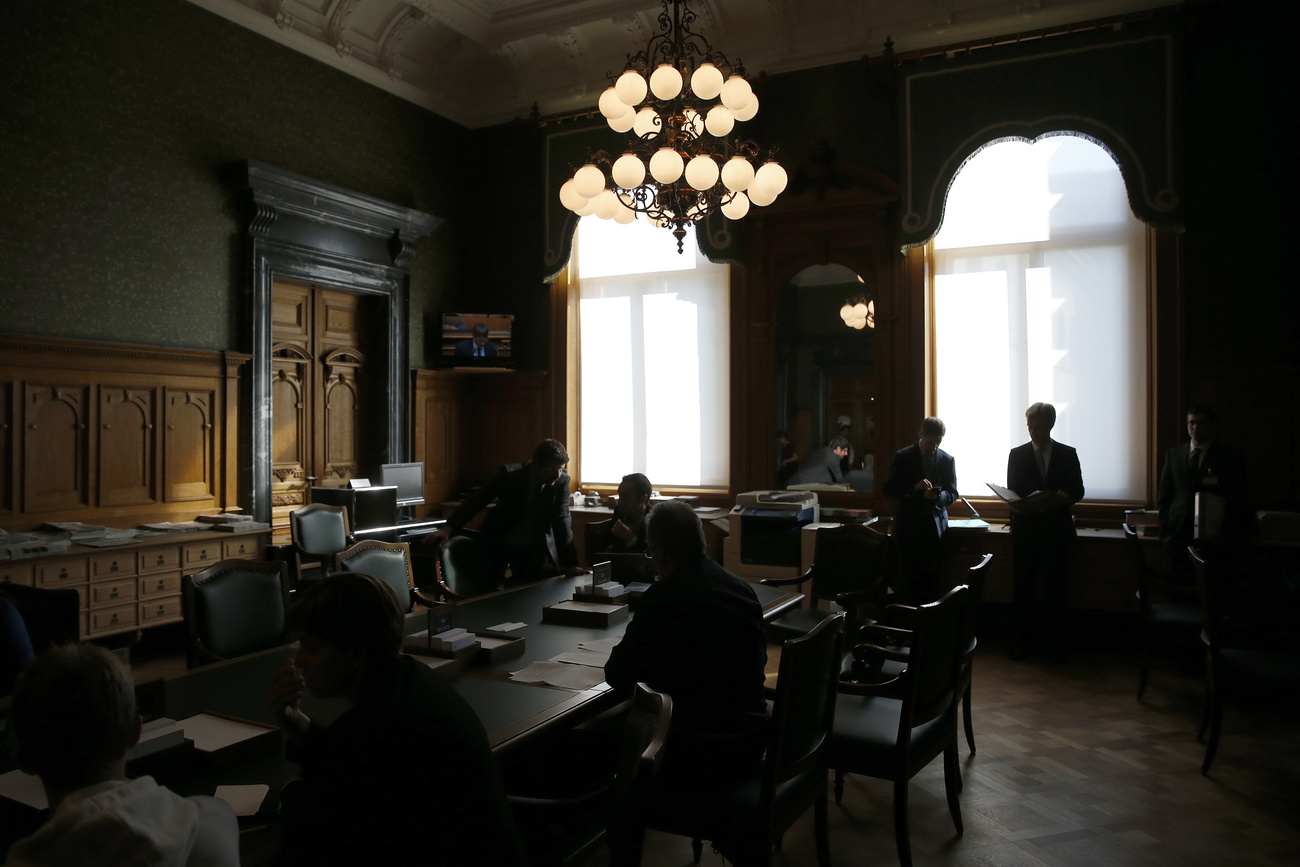Swiss elites among best at creating value

Switzerland’s elite power brokers are among the most efficient in the world at creating value for society. This is the finding of a new study that seeks to measure the impact of policy makers, big business and civil society on different countries.
Elite players can create systems that hoard wealth and power among themselves or allow it to be recycled throughout society. The authors contend that the latter system allows countries to flourish, even if it means breaking down elites to allow new talent and ideas to emerge through a process of “creative destruction”.
The EQx Elite Quality ReportExternal link from the University of St Gallen uses 72 indicators to determine the degree to which national elites either create or destroy value. These include laws and regulations, taxation, gender equality, business monopolies, state spending, the power of trade unions and corruption.
Singapore comes out on top of the study with Switzerland in second place, followed by Germany. Egypt is ranked bottom of the 32 countries, below Argentina and South Africa.
Switzerland scores particularly well for its decentralised direct democracy system and the hands-off approach of the state to business. It loses marks for the high concentration of dominant multinationals and red-tape restrictions on starting new companies. Both are seen as inhibitors to new business growth.
In general, Asian countries dominate political power among elites but compensate this by allowing new value creation to flourish, according to Tomas Casas, one of the report’s authors. Anglo-Saxon countries have an opposite tendency, where the elites have less political clout, a reflection of high institutional quality, but manage to run extractive business models.
Germanic states in Europe, including Switzerland, have steered a middle path between the two, says Casas.
The study defines elites as “narrow, coordinated groups with business models that successfully accumulate wealth”. This can include politicians, industrialists, financiers, trade unions and lobby groups. These are the people and institutions that set the rules by which societies operate.

In compliance with the JTI standards
More: SWI swissinfo.ch certified by the Journalism Trust Initiative
You can find an overview of ongoing debates with our journalists here. Please join us!
If you want to start a conversation about a topic raised in this article or want to report factual errors, email us at english@swissinfo.ch.